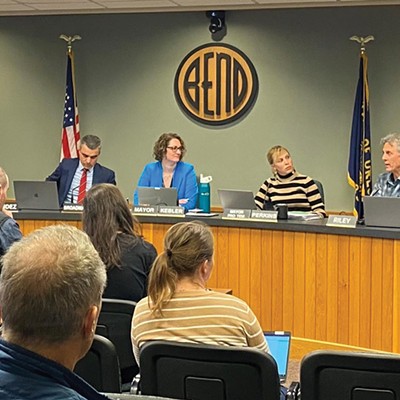One of our favorite legal concepts is the so-called "asked and answered" stipulation. By that agreement, a judge can simply declare "asked and answered," and whatever fact or opinion being argued is final and decided—and both sides must move forward from there. It is a concept much easier to accept in one's mind than in the heart—as usually one side must concede to a fact, opinion or concept it does not completely agree with. Regardless, the debate method of "asked and answered" moves forward a conversation toward resolution.
As in courtrooms, the concept also keeps football games moving forward: A referee may make a call that one team disputes—that a receiver seemed out-of-bounds or a questionable fumble was recovered by the other team. Sure, in recent years, professional and college leagues have implemented review periods, where coaches can challenge a decision with which they don't agree. But, once that decision is made—and is final—huff and puff all they want, the game moves on, and this decision can't be revisited (except perhaps on late night ESPN shows).
Oh, that politics were like sports in this regard, and less in the competitive buffoonery.
On Monday, as the federal government screeched to halt—largely because it hit a logjam caused by Republicans attempts, once again, to derail Obamacare—Rep. Tim Griffin of Arkansas stood on the Capitol steps with a football in hand and made an analogy that largely backfired.
"This is the old football strategy," he complained, "when you get to where you want to be in a football game, you run out the clock."
Actually, yes, Rep. Griffin, that is partially correct—and, I'm quite certain that if his beloved Razorbacks were leading in the fourth quarter, he would cheer their wisdom to run out the clock. Likewise, the debate over Obamacare has been "asked and answered" (and has no real bearing on the current budget debates).
The healthcare debate—and vote—was settled in March 2010. It was a bitter discussion to reach that point: The tone of debate was deplorable—behavior we wouldn't have tolerated in a kindergarten classroom. In the debate leading up to Congress' vote, in Sept. 2009, Rep. Joe Wilson of South Carolina yelled at President Obama during a speech about health care. "You lie," he shouted, disrupting an assembled conference. While the representative did receive a mild rebuke, he has been hailed as a folk hero by conservatives; in his latest re-election, he won with an astonishing 96 percent of the vote.
Like letting a child's tantrums go unchecked, this my-diapers-are-dirty behavior simply has festered, worsened, and hardened into habits we now seem to accept as par-for-course.
Yes, certainly the federal budget struggle is more complex than simply a debate over the spilled milk of Obamacare, but the squabbles are not any less child-like. It is, quite simply, a tone that is neither sophisticated nor smart, and not what we should expect from the highest lawmakers in the country—and, presumably, from our role models and representatives. That's why we're giving them the BOOT.
But, we at the Source don't want to shake our scolding finger for too long at our senators and representatives. Instead, this week we went looking for something more promising, more grown-up. We didn't need to look far.
In an apropos parallel, the Oregon state legislature returned to Salem on Monday for a special session to hammer out several budget matters. In contrast to the tantrums in D.C., the attitude and approach in Salem is commendable.
There wasn't name-calling (at least not publicly). There weren't putdowns. Sure, there were demands and there were difficult negotiations over the Public Employment Retirement system funds. But there also was a moment when state lawmakers took a break from work and sung happy birthday to Speaker of the House Tina Kotek.
While, at press time, the Oregon legislature had failed to reach an agreement, what is commendable is that the tone was different from the friction and anger in D.C.—an important difference not only for moving forward budget debates but also for setting the tone of the state and the country.


























